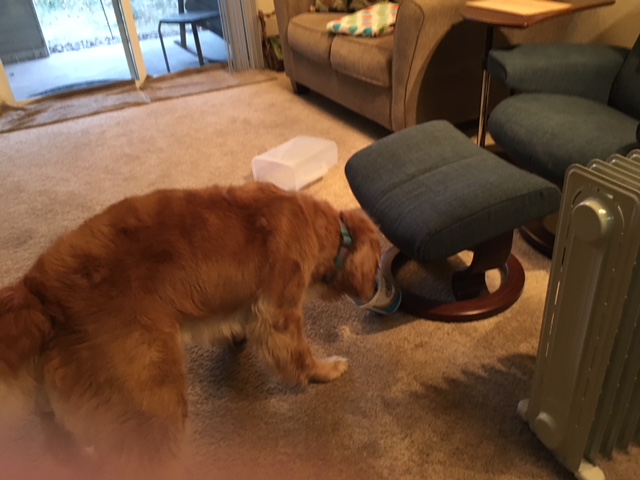A small study published in May looked at the effects of four scents on dogs in a shelter kennel. The focus was whether the aromatherapy would help the dogs relax. Though it’s a small study and, oddly the only one of its kind, it points to some additional ways that trainers and canine behavior consultants may be able to help clients with anxious dogs. (Odd because of how much we know about how important scent is to dogs; isn’t aromatherapy an obvious avenue for exploration?)
The shelter environment is generally noisy and stressful for dogs. Could wafting soothing scents help dogs relax? The scents studied were coconut, vanilla, valerian, and ginger. The odor was presented to the dogs on pieces of cloth. A “control” cloth with no scent was also used. Each scent was presented over a three-day period, and the dogs’ behavior was observed and recorded during the periods of exposure.
All four scents were found to reduce activity and vocalization. Coconut and ginger also increased the amount of time dogs spent sleeping. Any — or all — of these changes could indicate reduced anxiety.
One caveat is that this was one, very small, study. But it’s non-invasive and inexpensive. No dogs would be harmed by trainers or owners offering them scented materials in hopes of soothing them. I hope that more research is done on whether scents can calm dogs and which scents are most effective, but there’s a lot we could try on our or clients’ dogs.
Given the way most humans respond to scents — some are calming, others are irritating — along with dogs’ sensitivity to scent, it seems likely that aromatherapy could work for many dogs. I’d love to see something as easy to implement as infusions of relaxing scents become a standard protocol at kennels and shelters, maybe vet clinics — anywhere that stressed-out, anxious dogs are likely to be found.
Dogs with separation anxiety, thunderstorm anxiety, or general stress might relax a bit if exposed to the right scent. I’m not suggesting this as a miracle cure for anxiety, but if an anxious dog sleeps more when owners are away, that could reduce stress behaviors, barking, or other troublesome symptoms of anxiety. The dog might also enjoy improved quality of life if she’s feeling more relaxed.
Another caveat: The scents that tend to be soothing to humans might not have the same effect on dogs, and scents that they find calming might be unpleasant to us. Even if that turned out to be the case, it would be interesting to know more about how scent affects dogs’ moods and energy or activity levels.
Note: This post is a revised version of a post on the Thinking Dog blog. To learn more about dogs’ amazing sense of smell, read Being a Dog by Alexandra Horowitz.

